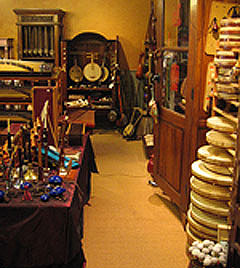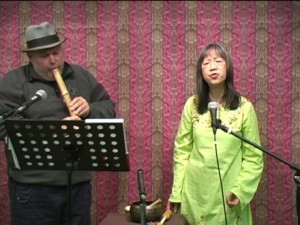
Maybe he is Buddha. But for seven years Bill Mercer was in flesh and blood. It couldn’t have been a dream. We read poetry and accompanied each other with musical instruments for as long as we’ve known each other. Tonight I heard he left his apartment keys to another friend and took off in his van to Louisiana, where he came from.
Without a goodbye Bill disappears into the mist. Seven years ago he appeared at my shop, picked up one of the shakuhachis on display and filled the room with breathy and unharnessed sound. Bill became a regular customer at my world music concert series and we bumped into each other at Sacred Grounds’ poetry reading.
A constant friend and poetry partner, we read all over the Bay Area as Lunation. Bill cared for my cats while I was away. Up to two weeks ago he was helping me to take care of my aging father.
His brush paintings hang on my walls, somehow I know Bill won’t been back for a long time. Steve Mackin called him “Buddha of the Bayou”. There is something mystical about the number 7.





